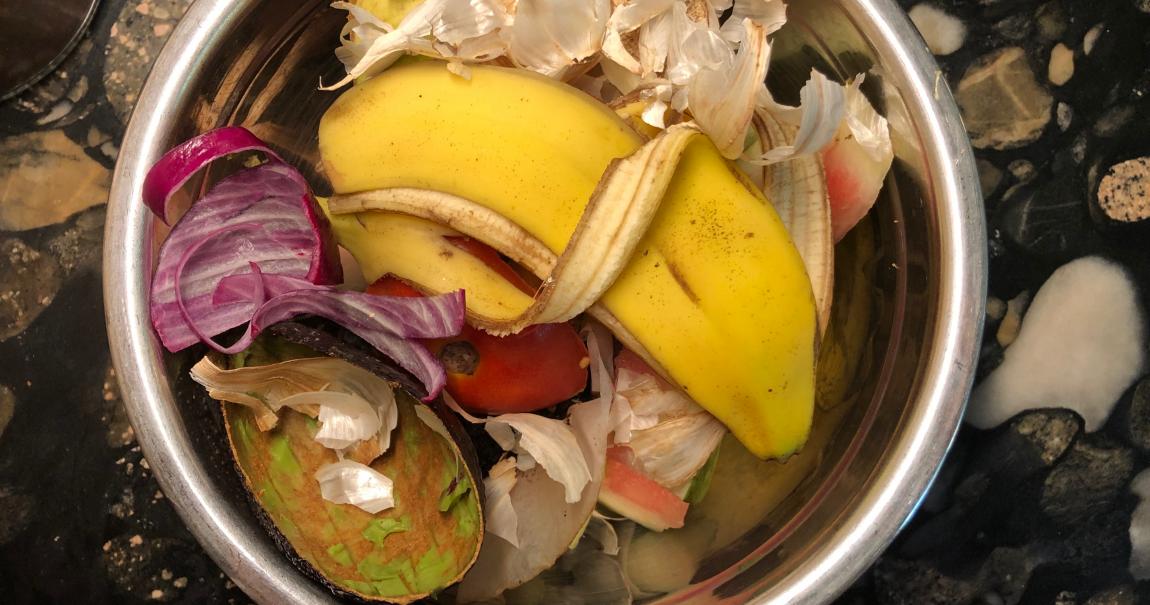

My Six Compost Myths
Here are the words that shared living space with the word ‘compost’ in my mind before actually attempting it:
smelly
messy
flies
complicated
something only farmers do
garbage dump
Now, we have kept a garden for years but this thing known as composting still seemed kind’ve separate in my mind, like something we don’t do in suburbia. Isn’t it weird how we create these illogical limitations? The older I get, the more I realize that I do this way too often. So in this spring of the Corona blossom, we found ourselves rethinking our gardening approach and began a compost bin. It is something we should’ve done a long time ago (like discovering the clothesline), and I’m going to debunk (almost all of) the above assertions.
Smelly: It’s actually not, as long as you stick to what belongs in there. Compost needs a combination of ‘brown’ and ‘green’ matter. It gets leaves, clippings, and twigs from when we clean up the yard (browns) and the fruit and vegetable peels from the kitchen cutting board (greens). No meat, no dairy. Keep a balance of both brown and green and you’re good to go.
Messy: So we bought a compost bin on Amazon that holds everything, plus has vents for air circulation. They’re not too expensive, and when you consider what you pay for a good fertilizer, I think it’s a sound investment. But you can totally make your own bin with pallets and such if you are handy. To collect scraps in the house, I just put a simple bowl with a lid on the kitchen counter. Banana peels and such accumulate from the day and then as we’re cleaning up dinner, the kids dump the bowl (“it’s my turn!”, “no, it’s mine!”) in the compost bin. Done and done.
Flies: Ok, when you open the lid to the bin, there are definitely little flies in there. It’s part of the breakdown process. But the bin is in the back of the yard and it’s honestly not a problem at all. We are in the habit of dumping the bowl in the kitchen every night, so no fruit flies in the house.
Complicated: Once we put it on our radar to put produce scraps in the bowl instead of the trash and got in the habit of dumping it in the evening, it is no trouble. Same with raked leaves; instead of putting them out to the curb for pickup, we add them to the bin. The decomposition takes care of itself, and only needs a little stir with a rake every once in a while to ensure air flow.
Something only farmers do: Listen, if you grow anything, it needs to eat. You can either buy it or make your own rich, organic fertilizer out of garbage.
Garbage dump: That little bin tucked away at the back of the yard isn’t unsightly at all. And speaking of dumps, here’s something I never realized. I used to think, oh, it’s no big deal to throw away vegetable peels because they decompose naturally...it’s not like throwing away plastic bottles. But actually, they don’t. It’s likely that whatever you put into that plastic garbage bag gets buried under layers of waste, which means it does not have access to light or oxygen and can’t biodegrade naturally. This means organic waste that is thrown away takes up more space in landfills and contributes to methane gas, which is a huge player in climate change.
My mental image of composting really was wrong. I am loving how such a small shift in our routine and mentality has such benefits. The kids are excited to see the results and it helps them learn about nature’s process. They are excited to add it to our garden to watch veggies and flowers grow bigger. They are understanding that it’s important to think before we throw something away, and truly we are producing significantly less garbage. I wish we started a long time ago, but I’m glad we’re rolling now and I hope that if you haven’t given it a try, you might maybe feel inspired to turn that trash into your garden’s treasure. If you do try it out, drop a comment below and let me know about it!

2 comments